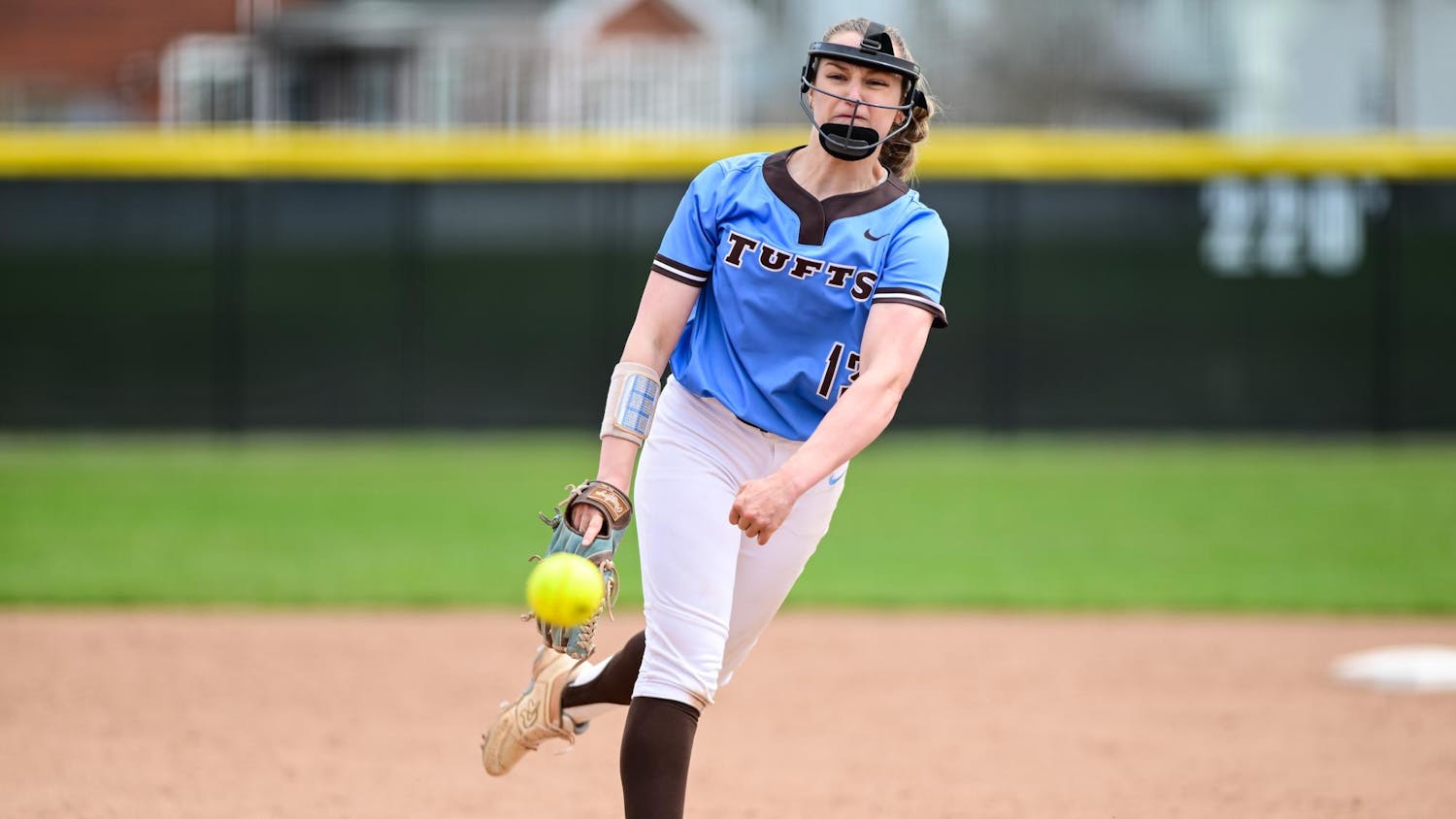Journalist Melissa Ludtke has been the subject of an ESPN documentary and has covered professional sports for more than 20 years. But her biggest accomplishment is something that continues to be a struggle for many: being a woman in a field traditionally dominated by men.
Ludtke, who was born in Iowa City, Iowa, before moving to Amherst, Mass., grew up around baseball. In a talk at Tufts last Tuesday, she recalled learning baseball from her mother, who used to thumbtack photographs of baseball players around her bedroom.
So it was from my mother that I really inherited that gene of loving baseball, Ludtke said. Thats what I grew up with. To me it wasnt an alien idea that a woman should like baseball.
Yet this idea was in stark contrast to what was actually going on with women in sports media at the time. Just five years before Ludtke started as a baseball reporter, in some places women werent even permitted passes to go onto the field. Even after she negotiated access to the press box, she wasnt allowed to sit with male reporters during the pregame meal, but rather given a bench outside called the Ladies Pavilion.
I know it may seem like the stone ages to some of you, but it wasnt that long ago, Howard Woolf, associate director of the Experimental College, said.
In 1977, something happened that would change how Ludtke would be remembered in sports history. After MLB Commissioner Bowie Kuhn prohibited her from interviewing players in the locker room during the 1977 World Series, Sports Illustrated publisher Time Inc. filed a discrimination lawsuit against the MLB on Ludtkes behalf. Time Inc. won the famous locker room case, setting the precedent for equal access to locker rooms for female reporters.
Although Ludtke happened to find herself in the middle of a huge controversy, she remembered herself as a typical reporter.
I would take the subway up and go hang out on the field and try to listen as much as I could, and watch people do interviews, and try to learn how to do the job as a reporter, she said.
The fact remains, though, that Ludtke set the ball rolling by not backing down in the face of adversity. She is a reminder of the progress that the womens rights movement has made in the past 40 years.
There was a difference between the early 70s and mid 70s, just in the way women felt about themselves in the workplace Ludtke said. It was a challenging thing to be in an environment that was so utterly male.
She learned to dress like a man, act like a man and even talk like a man. She learned to spout statistics and anecdotes and spent a lot of time after games in bars late at night, sharing stories. In the wider social context, however, her experience was not unique, as the womens rights movement still had many battles to fight at the time.
There was always this sense of who I might be as me, and who I had to become [to be a sports reporter], she said.
So, how does Ludtke feel about the progress that has been made for women in sports today?
[An aspiring female reporter] would have a much easier time today to find a pathway into that than I did in my time, she said. I think its changed profoundly, but it does not mean that I think all issues have been resolved to make it a more fair and equal playing field.
At the Association for Women in Sports Media conference earlier this year, Ludtke was surprised to hear that women still drop out of sports writing largely because of marriage or starting a family.
The demands of [working in sports media] are extraordinary, and its only gotten more so with social media. Its a 24/7 thing on top of the travel, she said. Thats not that family and these things do not have a similar value to men, but by and large you begin to see a disproportionately large drop off at a fairly predictable age in terms of gender breakdown.
After the 1978 locker room court case, Ludtke took a break from the sports world but remained in the field of journalism. Writing for Time Magazine as a correspondent, she covered womens, family and childrens issues. In 1997, she published a book about single motherhood.
Ludtke is more than just the woman that sued the MLB and won she is a pioneer in the fight for gender equality in sports journalism.





